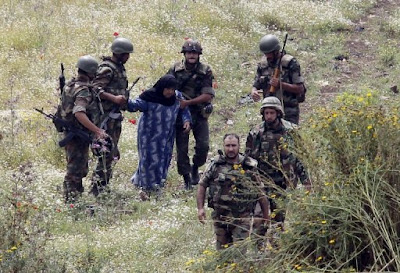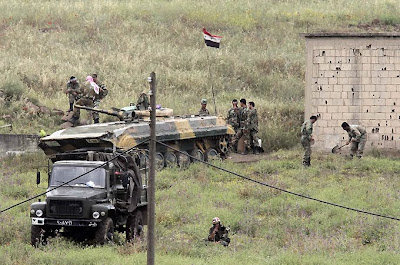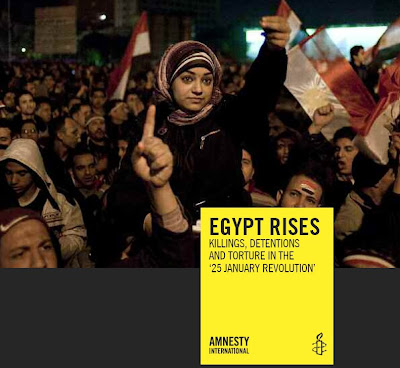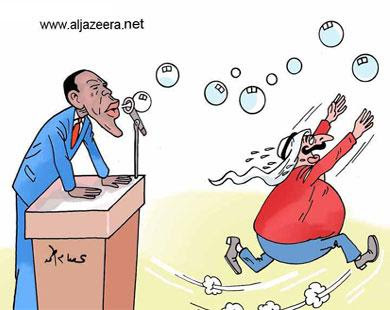By Pepe Escobar
Asia Times
"The true intent of the dodgy "dignity versus dictator" rhetoric of Barack Obama's Middle East "reset" speech lies in a simple tally:
Israel mentioned 28 times and a big zilch for Saudi Arabia. Don't watch this United States president's lips for the truth that
a US-Saudi-Israeli counter-revolution is on to smash the Arab revolt, or that "It's all about the oil, stupid"......
So let's start with a fact. For US President Barack Obama,
Saudi Arabia is not in the Middle East. Maybe the House of Saud has relocated the deserts and the oil to Oceania without telling anyone.....
....Obama tried to
rewrite history by inscribing Washington at the heart of the Arab-wide push for democracy.
It may fool Americans. It didn't fool the Arab street.
It took three long months for Obama to finally deal with the al-Khalifa dynasty in Bahrain -
without ever mentioning their masters Saudi Arabia. He let the Bahraini rulers off the hook with a State Department-issued velvet glove, at the same time deviating into a Riyadh/Tel Aviv-approved script blaming the evil of all evils Iran....
So to make a story short, here's a concise New Middle East Obama policy.
We support "our" bastards (dictators) who are sophisticated enough to beat, arrest and kill their own people in the low hundreds (Bahrain). We get slightly annoyed by "our" war on terror collaborators who crudely beat, arrest and kill their own people also in the low hundreds (Yemen). We're strongly inclined to ditch our support for unreliable, Iran-aligned dictators who beat, arrest and
kill their own people in the high hundreds (Syria).
We unleash war - via the
North Atlantic Treaty Organization as a weaponized arm of the United Nations - over unreliable oil-wealthy dictators who beat, arrest and kill their own people in alleged thousands (Libya). And
we remain absolute mute about "our" monarchical bastards who pre-empt the possibility of democratic protests (Jordan, Morocco, Saudi Arabia) or invade their neighbors to smash ongoing peaceful protests (Saudi Arabia).......
Obama's set of conditions for the Palestinians sounded
like a press release from Tel Aviv; against the reunion between Hamas and Fatah, against the planned Palestinian bid for statehood during the UN General Assembly in September. Nothing on sprawling, already existing settlements in the West Bank, just a call for Israel to cease "settlement activity" (what's that? A cousin of "kinetic military activity"?) No wonder Israeli media is spinning all this as a Netanyahu victory......
How could Obama's leadership possibly admit live, to the whole world, that
a US-Saudi-Israeli counter-revolution has been on since late February to smash the great 2011 Arab revolt - as Asia Times Online has been reporting?.....
How could Obama possibly admit, as professor of Arab politics at Columbia
Joseph Massad has been one of a few to point out, that "
the US-supported repression in Bahrain, Saudi Arabia, Oman, Yemen, Jordan, Morocco, Algeria, and in the United Arab Emirates goes hand in hand with the Euro-American-Qatari intervention in Libya to safeguard the oil wells for Western companies once a new government is in place"?
And how could Obama possibly admit that the defining struggle of these times is the great 2011 Arab revolt against the US/Saudi/Israeli counter-revolution?......."
















